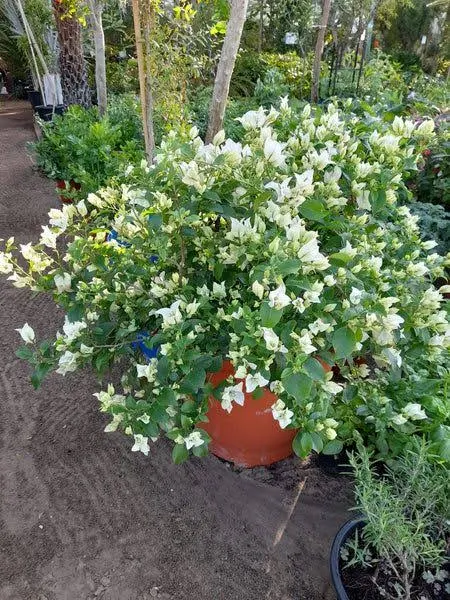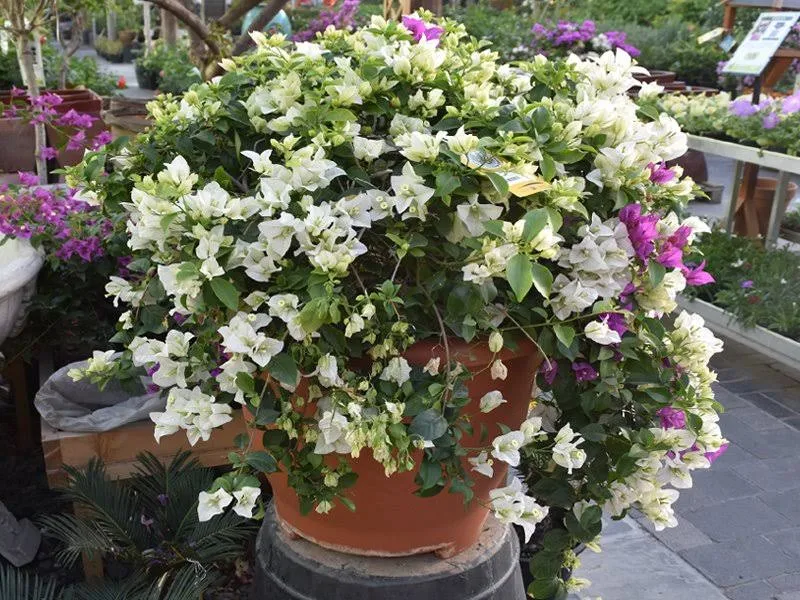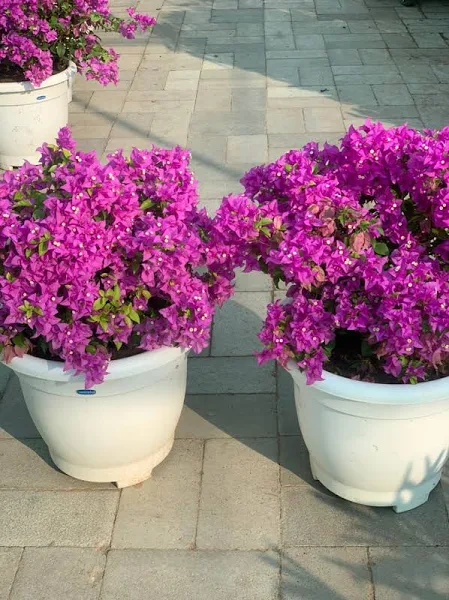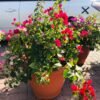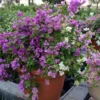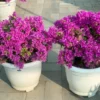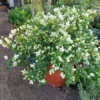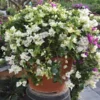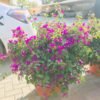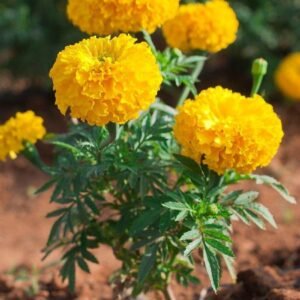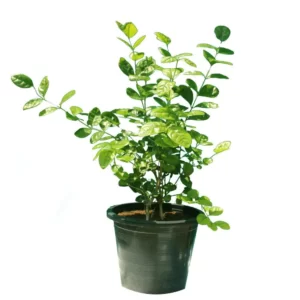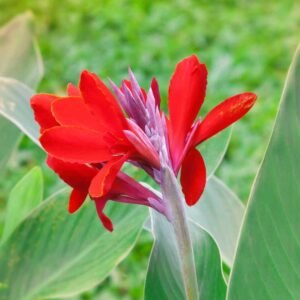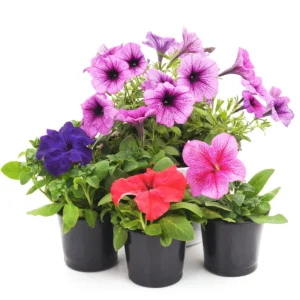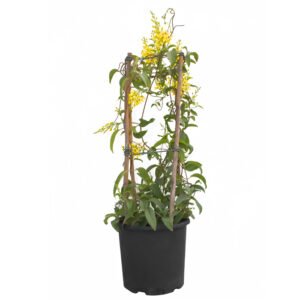| Scientific name | Bougainvillea glabra |
| Common name | Bougainvillea glabra bushy |
| Temperature requirement | 25-35 °C |
| Humidity | 40-50% |
| Light | full sun |
| Watering | Water everyday &keep moist |
| Pests | Aphids,leaf minor,mealybug,plant scale,snails,slugs,spider mite,thrips |
| Pet friendliness | Toxic to pets |
| Maximum plant height | 3-8m |
| Potting mix | Potting soil/red soil/manure/perlite |
| Pot requirement | Good drainage&repot every 1-2 years |
| Nutrition | Apply manure for first 15 days and npk for next 15 days |
| Pruning & training | Remove dead & diseased leaves with sterile shears |
| Flower color & season | Around the center of pink, red, or purple bracts, the flowers are much smaller than the bracts and are generally white. |
| Description | Bougainvillea, or janamiyah in arabic, is a woody climber with an armour of strong thorns. It provides vivid splashes of colour in an arid environment and grows well in gulf region, although it will tolerate only a few degrees below freezing. On appropriate supports, it may reach a height of 9 metres with relatively fast growth rate. It tolerates full sun, wind if trained well on its support. The plant’s vigorous nature necessitates frequent attention and the branches require strong trellises or pergolas. In favourable conditions, the foliage is evergreen, while the tiny flower itself is white and insignificant. Much more spectacular are the clusters of papery bracts that come in shades of violet, magenta, pink, red, orange and white. Good drainage, nutrient rich soil and frequent irrigation allow it to grow rapidly and produce a multitude of flowers from spring till autumn. During the winter months, the plants survive with little and should not be fertilised, in order to allow the plants to rest. Urban microclimates and drought are also tolerated, but at the cost of appearance. Bougainvillea glabra ‘mini thai’ is a dwarf variety with purple bracts. It grows slowly to a hemispherical, compact shrub 1.5 Metres high and about 2 metres wide. This plant is best suited to growing in containers. Propagation is easy by means of hardwood cuttings in spring. Offshoots should be covered during rooting to ensure high humidity. Winter pruning of frost damaged wood should be avoided, because it shelters new growth from surviving wood. |

